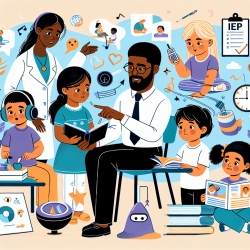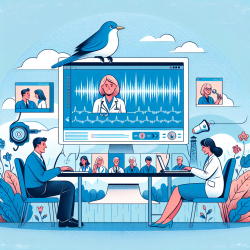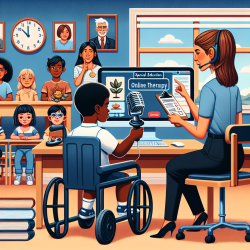The roles and responsibilities of school-based Speech-Language Pathologists (SLPs) and Speech-Language Pathology Assistants (SLPAs) are integral to the educational system. According to the American Speech-Language-Hearing Association (ASHA), these professionals play a crucial role in helping students meet performance standards and achieve academic success. This blog will delve into the various responsibilities of SLPs and SLPAs in schools, providing insights into their multifaceted roles.
Roles and Responsibilities of School-Based SLPs
ASHA's guidelines document, "Roles and Responsibilities of Speech-Language Pathologists in Schools," outlines that SLPs in schools have integral roles in education and are essential members of school faculties. They help students meet the performance standards of a particular school district and state by assuming a range of responsibilities, including:
- Working in partnership with others to meet students' needs
- Providing direction in defining SLPs' roles and responsibilities
- Ensuring appropriate services to students
SLPs as Classroom Substitutes
SLPs may sometimes be asked to serve as classroom substitutes. However, there are several considerations they should address with administrators:
- IEPs: Diverting SLPs from their caseload may interrupt the implementation of a student's Individualized Education Program (IEP), potentially resulting in a denial of a Free and Appropriate Public Education (FAPE).
- Workload: Serving as a sub may increase the SLP's workload, necessitating makeup sessions and possibly interfering with scheduled IEP meetings, screenings, and assessments.
- Teaching Certification and State Licensure: Review your contract, job description, and state licensure laws to ensure compliance with state requirements and ASHA's Code of Ethics.
- Funding: Determine if SLP positions are funded by working with students with special needs, such as IDEA Part B.
SLPs' Role in Literacy
SLPs are well-equipped to assume various roles related to the development of reading and writing due to their knowledge of language acquisition and clinical experience. Their responsibilities include:
- Preventing written language problems by fostering language acquisition and emergent literacy
- Identifying children at risk for reading and writing problems
- Assessing reading and writing
- Providing intervention and documenting outcomes for reading and writing
- Advocating for effective literacy practices and advancing evidence-based knowledge of literacy
SLPs and Feeding and Swallowing Disorders
SLPs play a central role in the assessment, diagnosis, and treatment of infants and children with feeding and swallowing disorders. Their professional activities include:
- Clinical/educational services (diagnosis, assessment, planning, and treatment)
- Prevention and advocacy
- Education, administration, and research
SLPs and English Language Learners (ELLs)
School-based SLPs also work with students who are English Language Learners (ELLs) and have speech-language disorders. They evaluate and treat these students while ensuring they are neither over-identified nor under-served. ASHA offers resources to guide SLPs in serving ELLs, including:
- Multilingual Service Delivery
- Collaborating With Interpreters, Transliterators, and Translators
- Cultural Responsiveness
- Learning More Than One Language
- Cultural Competence Check-Ins
Roles and Responsibilities of SLPAs
According to ASHA's Scope of Practice for the Speech-Language Pathology Assistant, SLPAs engage in various activities to support speech-language service provision:
Service Delivery
- Self-identifying as an SLPA to students, families, and staff
- Complying with federal, state, and local regulations
- Administering and scoring screenings and assessments
- Implementing care plans developed by the supervising SLP
- Providing direct therapy services and documenting outcomes
- Assisting with augmentative and alternative communication (AAC) devices
Administrative Support
- Assisting with clerical duties and site operations
- Performing safety checks and maintenance of equipment
- Preparing materials for screening, assessment, and treatment services
Prevention and Advocacy
- Presenting primary prevention information to at-risk groups
- Promoting early identification and intervention activities
- Advocating for individuals and families through community awareness
- Supporting research projects, in-service training, and public relations programs
Activities Outside SLPA Scope of Practice
SLPAs should NOT engage in the following activities:
- Representing themselves as the SLP
- Interpreting assessment tools for diagnosing disabilities
- Administering or interpreting feeding and/or swallowing screenings
- Diagnosing communication and feeding/swallowing disorders
- Developing or determining feeding and/or swallowing strategies
- Disclosing clinical or confidential information
- Writing or modifying a plan of care
- Making referrals for additional services
- Assisting without following the individualized plan of care
- Selecting AAC systems or devices
- Treating medically fragile students without 100% direct supervision
- Providing input in care conferences without the supervising SLP
- Signing formal documents without the supervising SLP’s co-signature
- Discharging a student, patient, or client from services
State laws may differ, so it is essential to check specific state regulations to determine the tasks that fall outside the scope of responsibility for SLPAs.For more information, please follow this
link.










